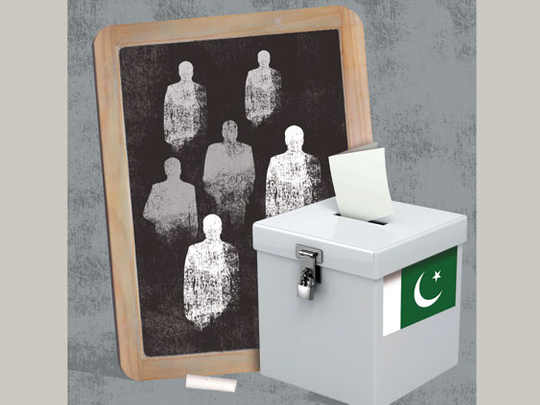
The decision by Pakistan’s Supreme Court this week to give the government a fortnight to contact Swiss authorities and reopen an investigation into President Asif Ali Zardari’s assets overseas could mean that Pakistan soon sees its second prime minister sacked in a matter of weeks.
The incumbent, Raja Pervez Ashraf, took over after the court last month sacked his predecessor, Yousuf Raza Gilani, for contempt of court for refusing to ask Switzerland to reopen its probe. And there are no signs the court, which has built a reputation for pugnacious independence in recent years, is going to back down.
Yet, the renewed battle between the Supreme Court and the executive has obscured the relative stability of the current government. In Pakistan, one of the underappreciated milestones achieved by the Pakistan Peoples Party coalition, elected in February 2008, just weeks after the assassination of Benazir Bhutto, is that it is close to completing its five-year term. If it were able to do so, it would be the first civilian administration in Pakistan, which has been ruled by generals for about half its history, to go the distance.
This is in large part because the military, led by General Ashfaq Kayani, despite its many disagreements with the PPP government, appears to believe it is more politic to exercise power from behind the scenes. Unless there are riots or a breakdown of governance, it is hard to see why the army would change that stance now, given the challenges of solving Pakistan’s looming balance of payments problems and catastrophic electricity shortages.
Many observers in Pakistan are anticipating that the government will call for early elections in the next few months — the PPP coalition’s term ends next March — with relatively few predicting a coup. Over the past couple of weeks, Zardari’s PPP and the main opposition party led by Nawaz Sharif have been holding amicable discussions about the shape of a caretaker government that must be formed when the PPP coalition calls for elections. Last Monday, a widely respected former judge was sworn in as Chief Election Commissioner.
The freedom of the past few years has allowed sections of Pakistan’s civil society to grow stronger. And most Pakistanis would still prefer to have civilian politicians in charge rather than the military.
Despite the recurrence of terrorist attacks across Pakistan in the past couple of weeks, the country has shown resilience. Relations between the US and Pakistan reached their lowest ebb after the killing of Osama Bin Laden in a Pakistani garrison town and the accidental killing of 26 Pakistani soldiers in a US air strike last year.
Pakistan’s decision early this month to allow Nato forces in Afghanistan to use crucial land supply routes through the country displayed an ability by the Pakistani leadership to take decisions in the face of understandable public anger over the killing of the soldiers.
As Anatole Lieven, author of an acclaimed book on Pakistan observes, there are plenty of signs that the country is a troubled state rather than a failed state.
Just hours after terrorists had killed nine trainee policemen in a dawn raid in Lahore, which many said was a reprisal for reopening the land routes, the police chief in the city courteously met members of the public and the Financial Times in his office. In a court in Balochistan, Iftikhar Chaudhry, the Chief Justice, was sternly taking the Pakistani military to task over the mysterious death and disappearance of detainees in the restive province.
Meanwhile, the country’s most respected human rights lawyer, Asma Jehangir, was meeting other human rights lawyers at her home in Lahore. Undaunted by a recent death threat from extremist elements allegedly close to the country’s secret service that has necessitated extra police guards at her home, she criticised the PPP coalition, the army and the judiciary in equal measure.
A British political scientist once described Pakistan as always poised between a coup and a rule by the mob. Even in these difficult times, a perpetually messy democracy seems a more likely alternative for a country with so many points of view.
— Financial Times









